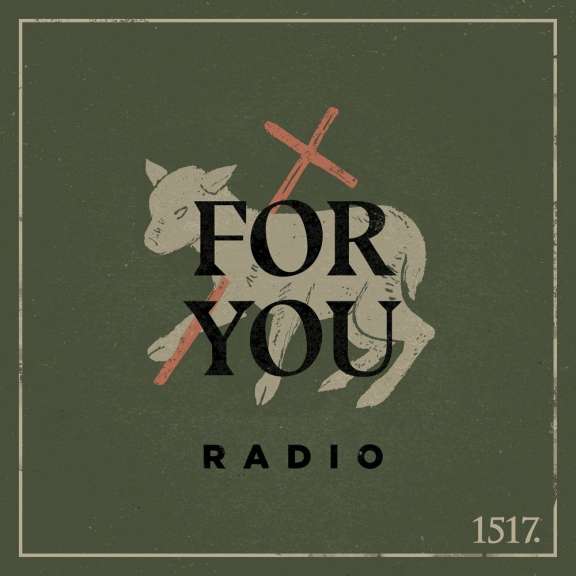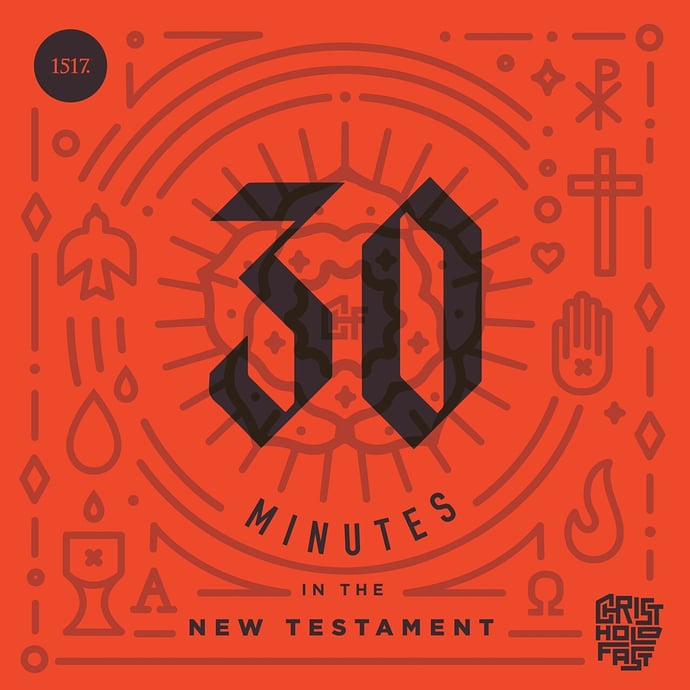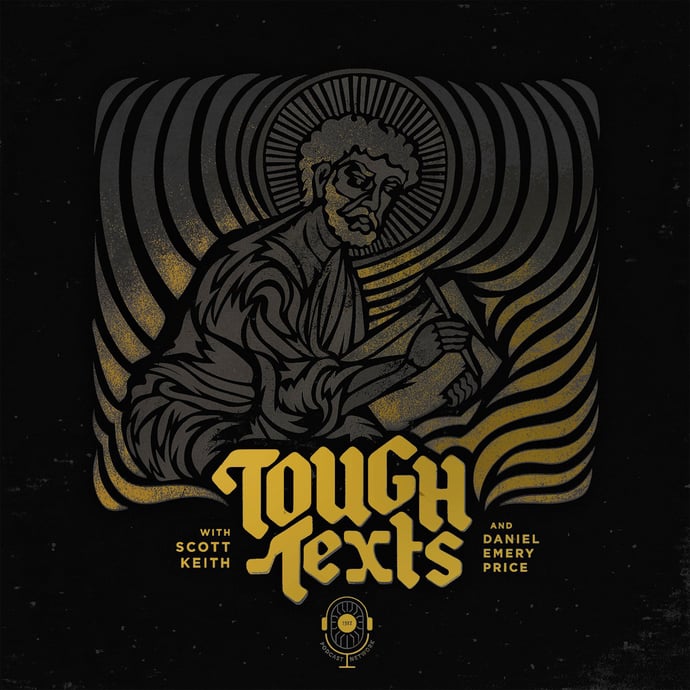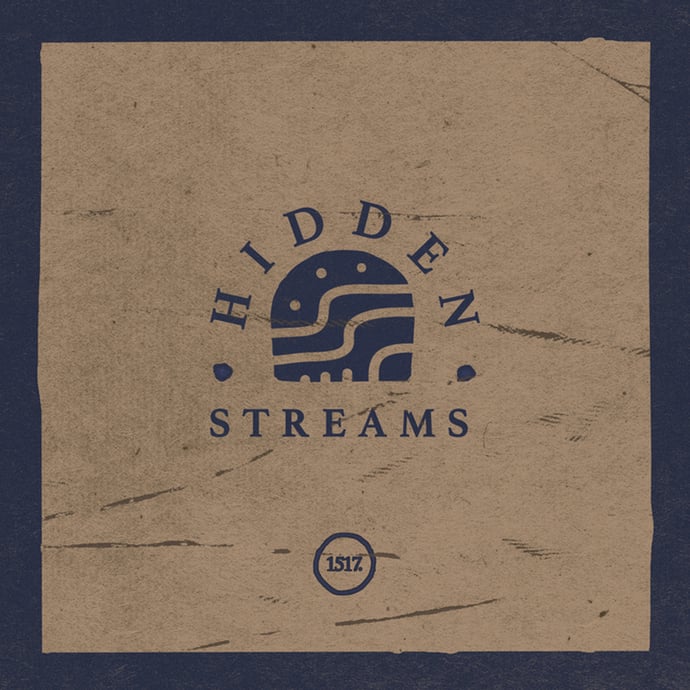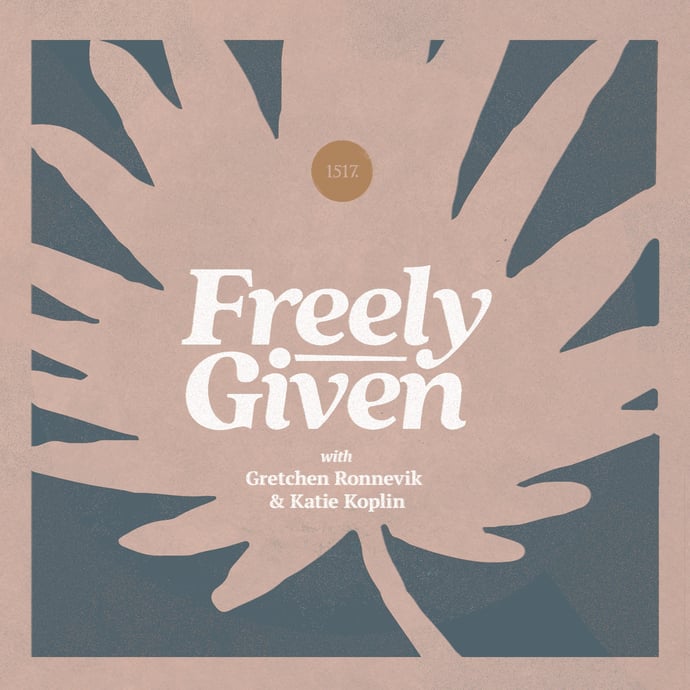Encore presentation: Steve Lownes returned to the studio to help Craig and Troy work out their relationship, but instead we end up talking more about the intersection of theology and therapy.
Podcasts
Each 1517 Podcast is dedicated to delivering Christ-centered content through weekly, monthly, and seasonal audio platforms. Listen online or on your favorite podcasting app.
Author
- All Authors
- Aaron Zimmerman
- Adam Francisco
- Amy Mantravadi
- Blake Flattley
- Bob Hiller
- Bradley Gray
- Brian W. Thomas
- Bror Erickson
- Bruce Hillman
- Caleb Keith
- Chad Bird
- Chris Rosebrough
- Christopher Gillespie
- Cindy Koch
- Craig Donofrio
- Dan van Voorhis
- Daniel Deen
- Daniel Emery Price
- Darrin Sheek
- David Andersen
- David Rufner
- David Zahl
- Debi Winrich
- Delwyn Campbell
- Donavon Riley
- Doug Klembara
- Edward Killian
- Elyse Fitzpatrick
- Erick Sorensen
- Flame
- Grant Klembara
- Gretchen Ronnevik
- Haroldo Camacho
- Jacob Smith
- Jared C. Wilson
- Jeff Mallinson
- Jeffrey Pulse
- Jessica Thompson
- Jim Nestingen
- Joel Fitzpatrick
- Joel Hess
- John Andrew Schreiner
- John Bombaro
- John T. Pless
- John W. Hoyum
- John Warwick Montgomery
- Katie Koplin
- Kelsi Klembara
- Ken Sundet Jones
- Magnus Persson
- Matt Popovits
- Michael Berg
- Michael Horton
- Nick Lannon
- Paul Koch
- Peter Nafzger
- Philip Bartelt
- Raleigh Sadler
- RJ Grunewald
- Robert Kolb
- Rod Rosenbladt
- Ron Hodel
- Sam Leanza Ortiz
- Sarah Condon
- Sarah Crowder
- Scott Davis
- Scott Keith
- Steven Paulson
- Tanner Olson
- Troy Neujahr
- Uwe Siemon-Netto
- Wade Johnston
- William Cwirla
-
Encore presentation: Therapist Steve Lownes joins Craig and Troy for a discussion on theology and therapy. How are they the same, and how are they different?
-
Everybody’s Working for the Weekend. In this episode, we continue our Lenten tradition of reading Luther’s Galatians commentary in March, discussing past and present idolatry and why we keep falling for the same sales pitches from the same gods.
-
Hey, You Guys! In this episode, we discuss the dominant spirit of our age, acedia, by reading and discussing St. John Cassian’s exposition of acedia in The Institutes.
-
In episode TWO HUNDRED AND SIXTY, Jason, Mike, and Wade are joined by our colleague and friend, the Rev. Dr. Joel Pless.
-
Sure Shot. In this episode of Banned Books, we read Rod Rosenbladt’s essay, Christ Died for the Sins of Christians Too. We talk about theological mentors, the Reformation, law and Gospel, justification, sanctification, the Church, and where we find our comfort at all times, in all places.
-
What do the scriptures say about the Church?
-
In this episode of Outside Ourselves, pastor and professor, Ken Jones, helps tackle the question, "What Does it Mean to Die a Good Death?"
-
In today's episode of Tough Texts, Scott Keith and Daniel Emery Price dive into the teachings of Ephesians 1:15-23, a passage that reminds shows us that God has given Christ to the church.
-
Psalm 40- David declares his innocence in this Psalm.
-
The Art of Noise. In this episode, we discuss the ins and outs of pastoral care — the art, the discipline, and the experience of pastoral care — while reading The Rule of Gregory the Great. It’s all about church leadership and pastoral ministry in this week’s episode of Banned Books.
-
Gretchen and Katie have a conversation with Rev. Bob Hiller about prosperity gospel, and how it sneaks into churches in a way that we start targeting the healthy people, the young families, and those who have something to offer the church.
